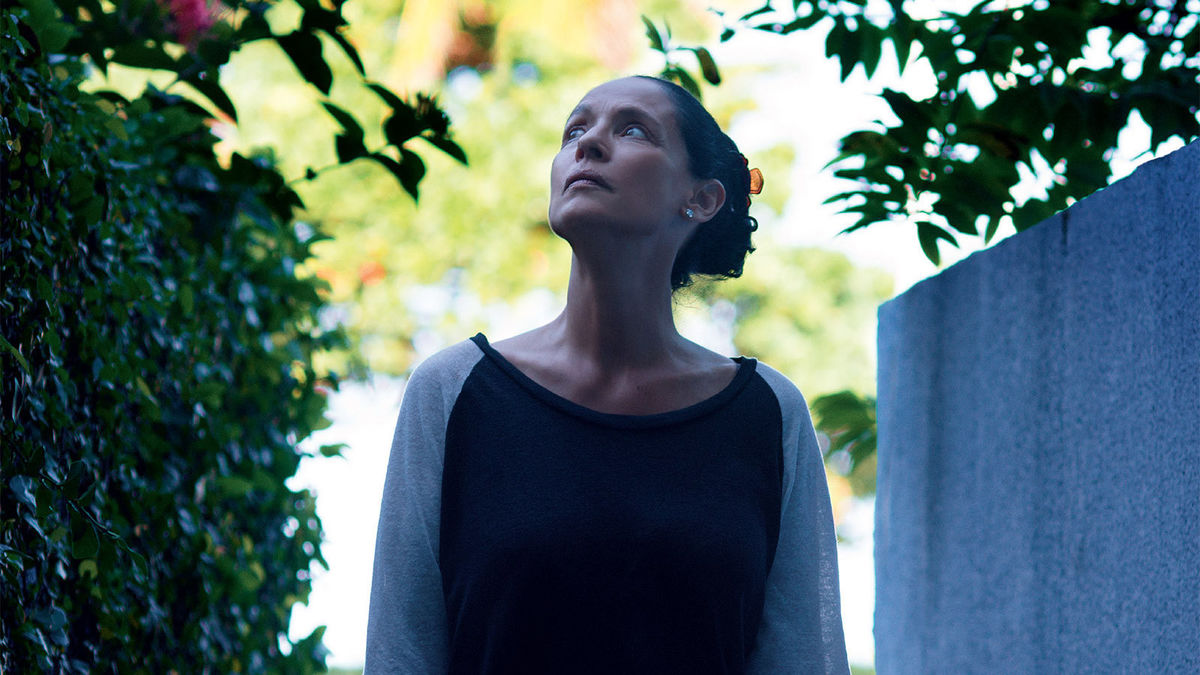Friday, 24 March 2017
Home under the hammer: "Aquarius"
Kleber Mendonça Filho is the emergent Brazilian writer-director who broke through internationally with 2012's Neighbouring Sounds, a polyphonic evocation of a few square blocks in the filmmaker's native Recife. His follow-up Aquarius narrows its focus further still to deliver a novelistic portrait of a single beachside apartment block - that of the title, named during a new age of hope in Brazil - which has fallen under dire threat from developers. As seems to be increasingly the case, the fightback will be led by a woman: Dona Clara (Sonia Braga), a vivacious sixtysomething - introduced swimming, dancing and performing tai chi; not simultaneously, although you don't doubt she could if she set her mind to it - who has survived the rigours of breast cancer and losing a partner and will be damned if she's going to let gentrification get the better of her.
Very quickly, we note that Clara isn't some scrabbling slumdweller, rather a lady of leisure, and some privilege besides: a successful writer back in the day, she has a swelling family, links to high society, and a loyal domestic on her payroll. Mendonça's idea is that wealth inequality in contemporary Brazil has accelerated to the point where even the relatively well-to-do are starting to feel the squeeze - that land-grabs like the one the film dramatises have become so common that there can be no safe or higher ground. (The film became a cause célèbre in its home country after opening during a right-wing coup that was protested by cast and crew on the red carpet at Cannes, but British cinemagoers need only look to that block of luxury flats going up next to their arthouse of choice - or on the former site of that arthouse - to sense the director may have a point.)
The crucial word in the above synopsis, however, is portrait. Aquarius rarely feels like a thesis, rather a series of snapshots - not unlike those Mendonça presents beneath the opening credits - of individuals and groups of individuals (girls on a night out, guests at a party, musicians in a band) attempting to escape from under some of the same stresses and strains you and I might feel on a daily basis. The approach risks accusations of indulgence. Mendonça's goal is to immerse us in a particular environment and social milieu, and several sequences seem to make their point long before the director can think or bear to call cut. Neighbouring Sounds ran to a generous 132 minutes; Aquarius goes to 148, although it's not unlike its fellow Cannes competitor Toni Erdmann in its proposal that heel-dragging may be one form of resistance against the get-rich-quick merchants of this world.
On the plus side, the handling allows Mendonça to take in more signs of life, not least Braga, that imperious figurehead of Brazilian cinema, who evinces a firm sense of a woman who's seen and done a lot in this world and isn't going to stand for any old crap, not least the boys' game of erecting skyscrapers for the sake of boosting an ego or a bank account. Mendonça locates a growing generational tension - again, very Toni E - between Clara, as much an artefact of the bohemian life as the vinyl records she's collected, and her offspring, who've grown up in a world where the corporations always get their way, and so meekly play along. Will these nearest and dearest provide a buffer between Clara and the moneymen, or - taking the path of least exhausting resistance - give her an extra push out the door?
Throughout the second hour, you can start to feel Mendonça biding his time and treading narrative water. Among the comings and goings, there are distinct signs he has his eye on a crossover hit - so Clara cranks up "Fat Bottomed Girls" to drown out the orgy that's broken out on the floor above her (and I think the musos among us might wonder whether a true bohemian would be quite so into Queen, of all 70s rockers) - and that he feels the need to play up to his leading lady's screen persona as a torrid sex kitten. While the orgy unfolds upstairs, we witness Clara calling up a hunky young gigolo for her own entertainment (rather than sitting around waiting to get shafted in other ways), and - while hurriedly removing his trousers - insisting she won't need lube for the occasion. What a gal!
Thematically, however, many of Mendonça's choices are very effective. The film's second-billed star - less glamorous than the female lead, yet somehow far sturdier - is a wooden dresser accorded its own character arc. Introduced as a supporting player in an idle sexual fantasy, it then pops up in a midfilm nightmare as discarded heritage before finally presenting as evidence of how big business seeks to undermine us all - a recurring motif of the everyday that conveys something of the meanings we attach to material items, as if the tree in last week's The Olive Tree had come to shift into a more domestic shape. It still feels a little long and unwieldy to me, but then form, content and subject do come to align over the course of these two-and-a-half hours: if we are to hold out against the powers-that-be, perhaps we would all do well to convert ourselves into intractable, immovable objects.
Aquarius opens in selected cinemas from today.
Subscribe to:
Post Comments (Atom)

No comments:
Post a Comment